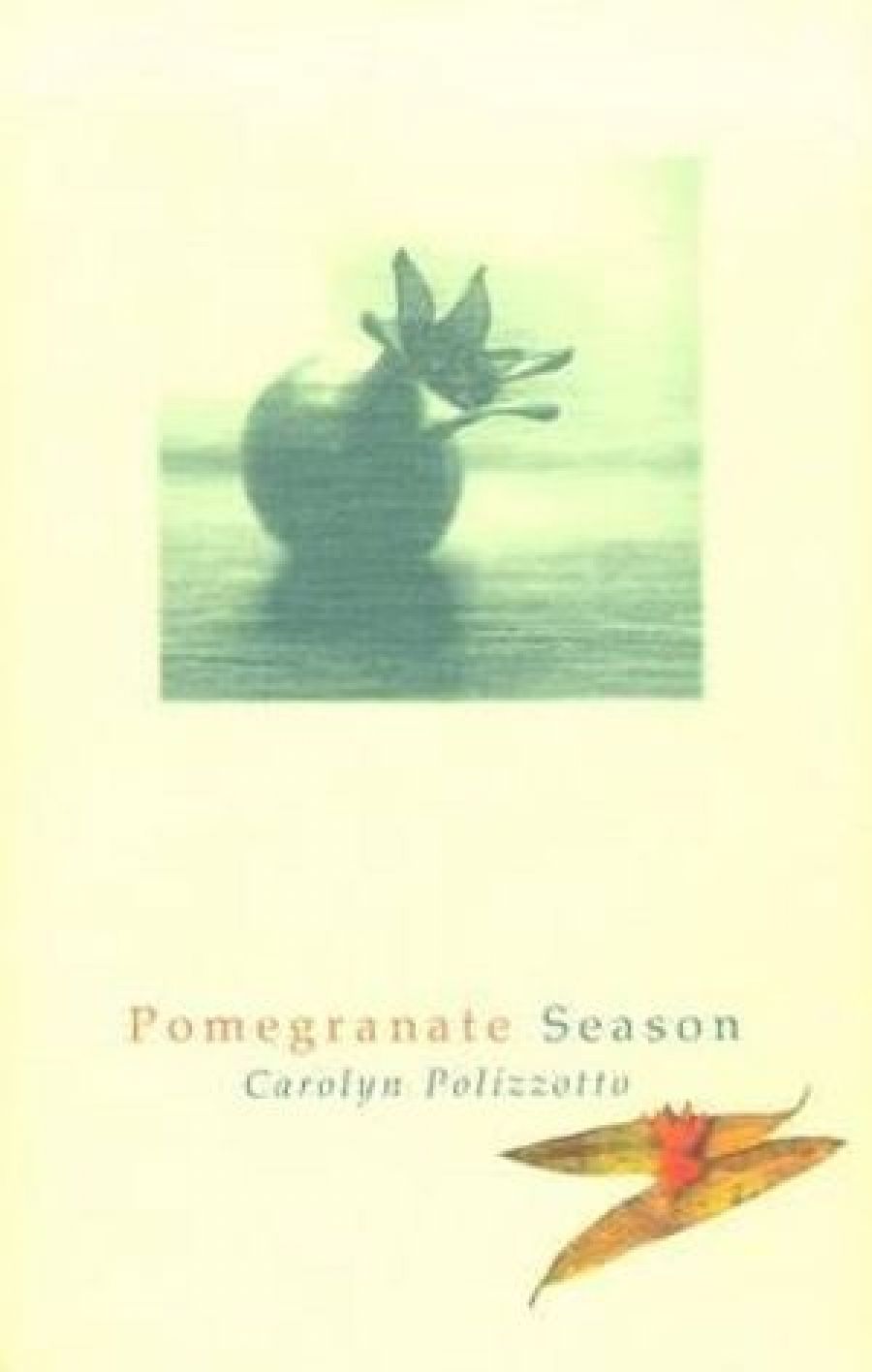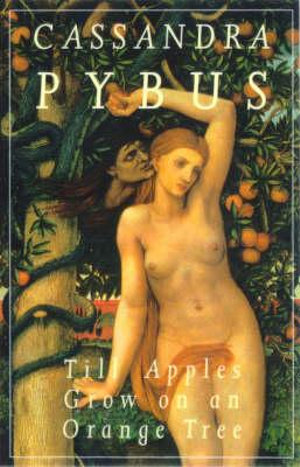
- Free Article: No
- Contents Category: Memoir
- Review Article: Yes
- Article Title: Autumnal Words
- Online Only: No
- Custom Highlight Text:
Two autobiographical works, both by women historians, are presented in the elegant small format which often says ‘gift book’ and may suggest more surface charm than substance. In fact, there are at least as many contrasts as resemblances between the two, and although the mood is quietly reflective, there is no easy nostalgia.
- Book 1 Title: Pomegranate Season
- Book 1 Biblio: FACP $19.95 hb, 256 pp
- Book 1 Readings Link: https://www.booktopia.com.au/pomegranate-season-polizzotto-carolyn/book/9781863682268.html
- Book 2 Title: Till Apples Grow on an Orange Tree
- Book 2 Biblio: UQP $24.95 hb, 225 pp
- Book 2 Cover Small (400 x 600):

- Book 2 Cover (800 x 1200):

- Book 2 Cover Path (no longer required): images/ABR_Digitising_2021/Archives_and_Online_Exclusives/till-apples-grow-on-an-orange-tree.jpg
- Book 2 Readings Link: https://www.booktopia.com.au/till-apples-grow-on-an-orange-tree-cassandra-pybus/book/9780702230363.html
The titles catch the same note: Pomegranate Season and Till Apples Grow on an Orange Tree. The writers belong to the same generation, and they look back, not in anger, but with a hard-won acceptance of the unexpected ways in which they have come to middle age. Carolyn Polizzotto lives in Perth; Cassandra Pybus in Tasmania; and the sense of place is central in both books.
In the beautifully designed Pomegranate Season, Carolyn Polizzotto uses the exacting form of the diary. Maintaining the diarist’s voice, in which self speaks to the self alone, has its problems: how do you let the reader into this private world without breaking the illusion?
Polizzotto gives the day by day story of her garden from one autumn to the next – planting, pruning, weeding, rejoicing in fertility, accepting that some seeds grow and some do not. You could call it a gardening book, but that would be as inept as cataloguing Dorothy Wordsworth’s Grasmere Journals under Botany. Indeed, Polizzotto’s spare, precise observation of the natural world gives Wordsworthian pleasures. Within the gardening diary, details of family, friendships and professional life emerge naturally, as memories, reminders, interruptions, welcome or not.
The narrative begins and ends with the autumnal ripening of pomegranates. Polizzono doesn’t offer a symbolic meaning, but it’s impossible not to hear an echo of the myth of Persephone and the pomegranate seeds. Like Ceres, mother of Persephone, Carolyn Polizzono has mourned a lost child – the ‘fantasy child’ who haunted her long after her son Luke was born. Only when she fully accepted the fact that Luke was retarded could Polizzono let go of her fantasy.
In the year of the diary, Polizzono is close to her fiftieth birthday. The wife of a Perth academic, she works as a freelance historian, taking commissions which can be fined in with the needs of Luke, a seventeen-year-old who attends a special school. His older brother, Mark, is a medical student. The pattern of family life is traced in the diary along with the account of the garden’s progress. Polizzono sees herself as always waiting, holding back anxiety, anticipating Luke’s needs but forcing herself to let him go out alone, to learn self-reliance within his limits. Her garden enables her to live to a different rhythm.
This is a reticent book. Grief surfaces in a few poignant details, such as the fact that the Polizzonos stopped using a photograph album when Luke was three. Albums are timebound; they show growth and progress. Loose photos are better; they can be looked at in any order.
Polizzotto remembers having felt, when Luke was small, that she and her husband had been expelled from the normal world:
We spent the first few years of his life, to my mind, in wrongful exile. Then it became clear that what we had entered, by virtue of Luke’s disabilities, was the normal world. 1be world where paying your taxes, and being kind to people, and keeping your insurance up to date won’t save you. The world where anything can happen. Certainty was gone from our lives.
Pomegranate Season finds strength in stillness. Till Apples Grow on an Orange Tree is full of rapid movement, journeys, quests and escapes. Home for Cassandra Pybus is the wonderfully named Lower Snug, Tasmania, where six generations of her family have lived. From there, she moved as a schoolgirl to Sydney. Growing up in the 1960s she discovered intellectual–bohemian life in Glebe pubs, dropped in and out of university, fell in love. So far, you could say it’s typical ’60s, but in the title story Pybus revisits a tragedy: a story of betrayal and violent death, unresolved and unexplained.
Pybus sees her younger self as always in flight, solving every problem with an airline ticket. She is shocked to remember how easy it was in the ’60s to move on, into new jobs, new relationships. She was a student–rebel at Berkeley, California in 1969 – a phase she now recalls with a sharp edge of irony. She is equally sharp about her next stage in self-invention, as a feminist bureaucrat in Melbourne, working for affirmative action policies in government. The quest for ‘self-actualisation’ had taken her into work she disliked: her air of self-confidence belied terror and loneliness. For her, the way out of the trap was to follow instinct rather than program. It was the way home, to Tasmania, marriage and the freedom of a writer’s life.
The later essays in Till Apples Grow on an Orange Tree are less directly personal, although an autobiographical thread unites them. ‘Oyster Cove, 1888’ is a powerful, painful and timely account of the last Tasmanian Aborigines, made more immediate by Pybus’s use of family history and her sense of place.
Other essays, including an account of visiting Port Arthur after the 1996 shootings, look at the way we make histories, at media manipulations, truth and legend. Now that the essay form is back in fashion, the authority and clarity of Cassandra Pybus’s voice add memorably to present debates and our sense of the past.


Comments powered by CComment